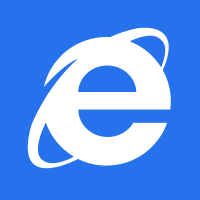Stop using Internet Exploer, even with VPNs

Governments urge Internet Explorer users to switch browsers until fix found | ZDNet
This and many other articles are relaying the information that governments are encouraging users to move to Chrome, Firefox, or Safari until this Microsoft Internet explorer bug is fixed. The vulnerability seems to have been in every version of IE since 6 through the current version 11. It is a remote exploitation vulnerability, so attackers can use it to run arbitrary code on your computer, effectively “owning” it. There are some work arounds within IE that may prevent the attack, but for now it is much safer and easier to simply move to a different browser.
It is important to remember that using a VPN like Anonymizer Universal does NOT provide any protection against this kind of attack. This is an attack directly against the browser using the content you have “requested”. The attack is launched from the site you are visiting, so the hostile content would flow through the VPN unhindered.
Anonymizer strongly encourages its users to move to Firefox, Safari, or Chrome, at least until this problem is resolved.
Lance Cottrell is the Founder and Chief Scientist of Anonymizer. Follow me on Facebook, Twitter, and Google+.